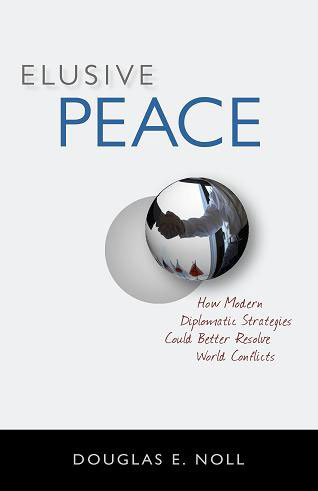What makes some societies properous, thriving and stable, while others are barely able to hold it together? That question is posed to Dr. Daniel Cloud, Professor of Philosophy at Princeton University and and author of The Lily: Evolution, Play and the Power of a Free Society.
On the Doug Noll Show, Doug first asks Dr. Cloud (Daniel) about his personal journey and what interested him in the subject of social evolution. Daniel answers that his first job was teaching English in Beijing in 1984. He found China was a very poor country and there was much hardship. He was routinely asked by his Chinese friends, “What’s the secret of the United States? What makes your society so special?” He had trouble answering but found that evolution, specifically technological evolution, was a thread that kept running through his conversations.
Evolution is the survival of the fittest, or more specifically, who is most successful reproductively. Daniel realized the West is not a culture, it’s a “set of technology” that has worked with a lot of different cultures. The West puts a lot of effort into throwing two ideas into an arena and fighting it out (electoral, financial, etc.). This creates our evolutionary processes.
Doug points out that when we have an evolutionary process there is room for origin, room for genesis, but also room for failure. We need to accept failure as well as success. This is an important point, because if we don’t allow failure to happen, we can’t eventually have our greatest success.
Daniel found that what we call “free society” only works well at particular points in history and at particular places. Free Society in modern form only started to be successful in 16th and 17th centuries. Democracy wouldn’t have worked in earlier times. There is a link to technological change. Capitalism is a social adaptation for facilitating rapid technological change. A system can’t function without a thriving capitalistic economy.
Because the rules are constantly changing, members of our society are forced to try out their ideas themselves. “What can be done with a telephone? A compass? An airplane?” A few will succeed and become prevalent, which, in turn, moves society forward. The consequences of technological change are far-reaching.
Doug asks Daniel why he thinks other societies shun Democracy. Daniel believes it’s because it’s very counter-intuitive. It seems crazy to leaders of an authoritarian society to let folks try out new ideas and again and again, and fail many times, but keep trying.
Regarding the Middle East, Iraq looks chaotic from a distance, but Daniel says the Iraqi Democracy is “kind of working.” The U.S. news coverage of Iraq’s issues is very negative. The Iraqi economy is actually enjoying incredible growth. They are now the 2nd biggest oil producer, so they have some prosperity. Daniel reminds us that things always look bad during a revolution – like a complete mess. It takes a long time to get the right institutional structure in place. He has found that what most folks want is just a nice, quiet life and to see their kids grow up, but yet people tolerate societies that suppress them.
Doug remarks that it took the U.S. as a new government about 20 years to get its act together. And it took even more time for the Supreme Court to settle into a government that really worked. European leaders thought it would never work. What made them wrong was our technology: the telegraph, the railroad, etc. The Internet is a shock if you’re not from a free society. It’s hard to believe how the Internet Internet is so full of free speech. Technology is freeing people from the shackles of suppressive society.
Doug then talks about what’s going on in the U.S. currently: people who embrace technology are generally more liberal. Our own society has a strong thread of deep conservatism, so how can we, as a society, cope with rapid technological change?
Daniel speaks to our current economic recovery and says manufacturing is recovering fine, but not the service sector because they are being automated out of existence by the Internet. We need to figure out how to transition from a service economy to an information economy. However, it’s not easy to put a price on information. Information is free. This process takes time and we haven’t figured it out yet. Further, government can’t fix this. It has to be fixed by the private sector.



